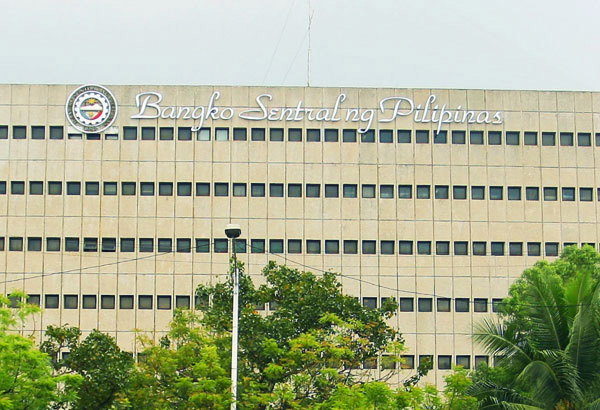BSP adds sweetener to repo program

The BSP the repo or reverse repurchase agreements wherein it buys government securities from a bank with a commitment to sell it back at a specified future date at a predetermined rate as well as the outright purchases and sales of securities for the purpose of increasing or decreasing liquidity on a more permanent basis. File
MANILA, Philippines — The Bangko Sentral ng Pilipinas (BSP) has assigned a zero-percent reserve requirement ratio on repurchase (repo) transactions as a sweetener to encourage more players to participate in the government securities repo program.
BSP Governor Nestor Espenilla Jr. issued Circular 983 announcing the reduction of reserve requirement on repo transactions in support of the comprehensive initiative to develop the domestic local currency debt market.
“This responds to the industry request to minimize the friction cost on repo transactions that conform to international best practices,” Espenilla said.
The reserve requirement is the percentage of bank deposits and deposit substitute liabilities that banks maintain or deposit with the central bank. The Philippines has the highest ratio in the region at 20 percent.
The decision of the Securities and Exchange Commission (SEC) to grant a provisional license to the Money Market Association of the Philippines (MART) to act as a self-regulatory organization (SRO) paves the way for the launch of the repo market on Nov. 27.
The assignment of a zero percent reserve requirement on deposit substitutes as evidenced by repo agreement starting the reserve week of Dec. 1 complements the earlier decision of the Bureau of Internal Revenue (BIR) to exempt repo transactions under the program from documentary stamp tax (DST).
“The BSP believes the establishment of an organized interdealer repo market will aid the development and deepening of the domestic financial market. In particular, this will provide eligible participants the ability to quote two-way prices, thereby enhancing price discovery and market liquidity,” he said.
Espenilla said the BSP is also encouraging industry participants to adopt prudent governance standards in line with international best practices pertaining to trading and settlement, documentation, accounting, and market and regulatory disclosures.
Participants in the repo market under the program should also establish appropriate safeguards to address counterparty and settlement risks, Espenilla said.
The BSP publicly buys or sells government securities from banks and financial institutions to expand or contract the supply of money. It uses the repo or reverse repurchase agreements wherein it buys government securities from a bank with a commitment to sell it back at a specified future date at a predetermined rate as well as the outright purchases and sales of securities for the purpose of increasing or decreasing liquidity on a more permanent basis.
A repo transaction expands the level of money supply as it increases the bank’s level of reserves while the reverse repo translates to a contraction in money supply as it reduces the reserve account of banks.
- Latest
- Trending

























